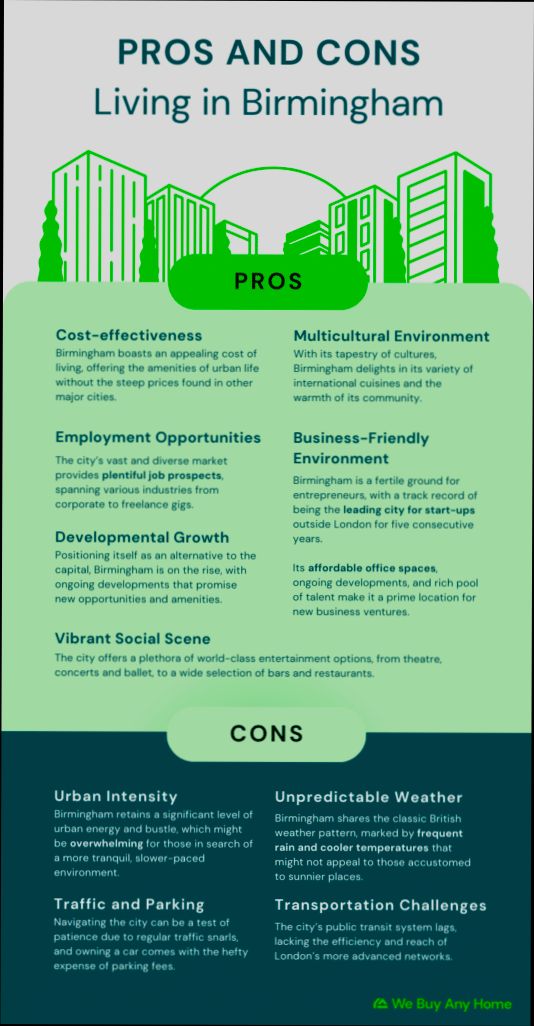Pros and Cons of Living in Birmingham can really shape your day-to-day life. On the plus side, you’ve got a vibrant cultural scene and a booming food industry that’s hard to ignore. For example, the city is home to the famous Balti Triangle, where you can munch on delicious curries that reflect Birmingham’s diverse population. Plus, with over 570 parks, you’ll find plenty of green spaces to unwind—think Cannon Hill Park for a leisurely stroll or a picnic. And let’s not forget the buzzing regeneration projects that are transforming areas like Digbeth into artsy hotspots, making it an exciting time to live here.
On the flip side, Birmingham has its challenges. The city’s traffic can be a nightmare, especially during rush hour when the roads feel like parking lots, and public transport doesn’t always hit the mark. A report showed that commuters can spend an average of 82 minutes a day just getting to and from work. Not to mention, the cost of living continues to rise, which means rent prices in desirable neighborhoods like the Jewellery Quarter can leave a dent in your wallet. So, while Birmingham is certainly brimming with life and opportunities, it’s wise to weigh those perks against the realities of daily living here.
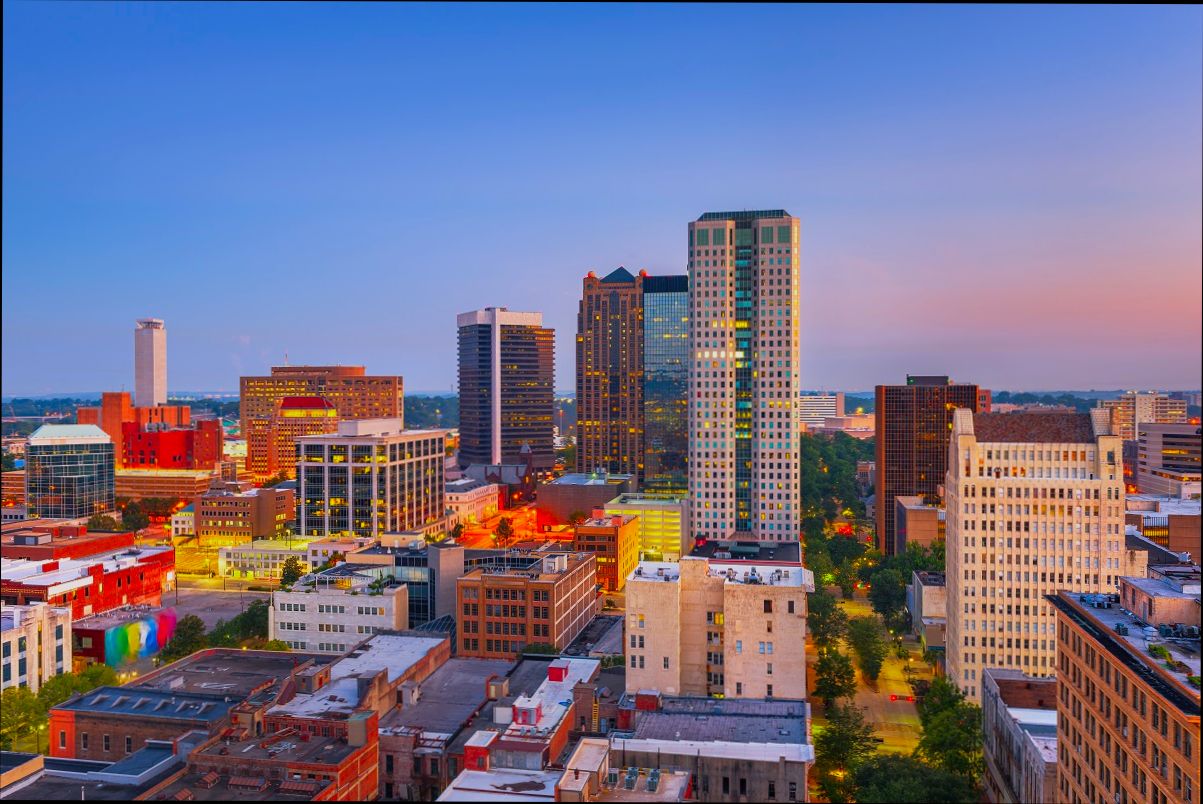
Cost of Living in Birmingham
Understanding the cost of living in Birmingham is crucial for anyone planning to move or budget for life in this vibrant city. With an average monthly expense of $1,943, Birmingham is ranked within the top 22% of the world’s most expensive cities. Let’s break down the specifics so you can get a clear picture.
Monthly Cost Breakdown
Living in Birmingham has various costs that can stack up, especially depending on your lifestyle. Here’s how the average monthly costs look for different household types:
| Cost of living | One person | Family of 4 |
|---|---|---|
| 💰 Total with rent | $1943 | $4864 |
| 🛋️ Without rent | $802 | $2664 |
| 🏨 Rent & Utilities | $1141 | $2200 |
| 🍽️ Food | $593 | $1520 |
| 🚐 Transport | $61.2 | $164 |
You can see that rent forms a significant portion of expenses. With rents for one-bedroom apartments averaging between $1,022 and $1,567, housing can take up a large chunk of your budget, especially if you’re a family.
Food and Dining Costs
Eating out can also affect your monthly budget significantly. For instance, a lunch menu will set you back about $15.8, while dinner for two in a local restaurant can cost around $54.9. Alternatively, if you’re looking for a quick meal, fast food options like McDonald’s will cost about $10.4. These expenses can add up quickly, so planning meals is a smart way to manage costs.
Transportation Expenses
When it comes to getting around, Birmingham is relatively affordable. The average monthly transport cost sits at just $61.2 for an individual, which is quite reasonable compared to many other metropolitan areas. You could also expect to spend around $164 for a family of four, making this one of the more budget-friendly aspects of living in Birmingham.
Real-World Examples
If you were to budget as a single person, your expenses could break down as follows:
- Rent and utilities: $1,141
- Food: $593
- Transportation: $61.2
Total: $1,795, leaving you with some room for discretionary spending and savings based on a median after-tax salary of $3,165.
For a family of four, while total living expenses rise to $4,864, the costs can be managed by opting for meal prepping and using public transportation, ultimately reducing the strain on your finances.
Actionable Insights
- Housing Strategy: Consider sharing accommodation to split rental costs, which can make a significant difference in your budget.
- Meal Planning: Planning meals ahead can help control food costs; grocery prices in Birmingham are about 2.4% lower than the national average, making home cooking a viable option.
- Public Transport: Take advantage of Birmingham’s affordable public transport system to save on commuting costs.
Key Facts to Remember
- The average monthly rent and utilities for a one-bedroom apartment are around $1,141.
- Budget approximately $593 monthly for food if eating regularly.
- A single person’s total living expense averages $1,943, which is manageable on a median salary of $3,165.
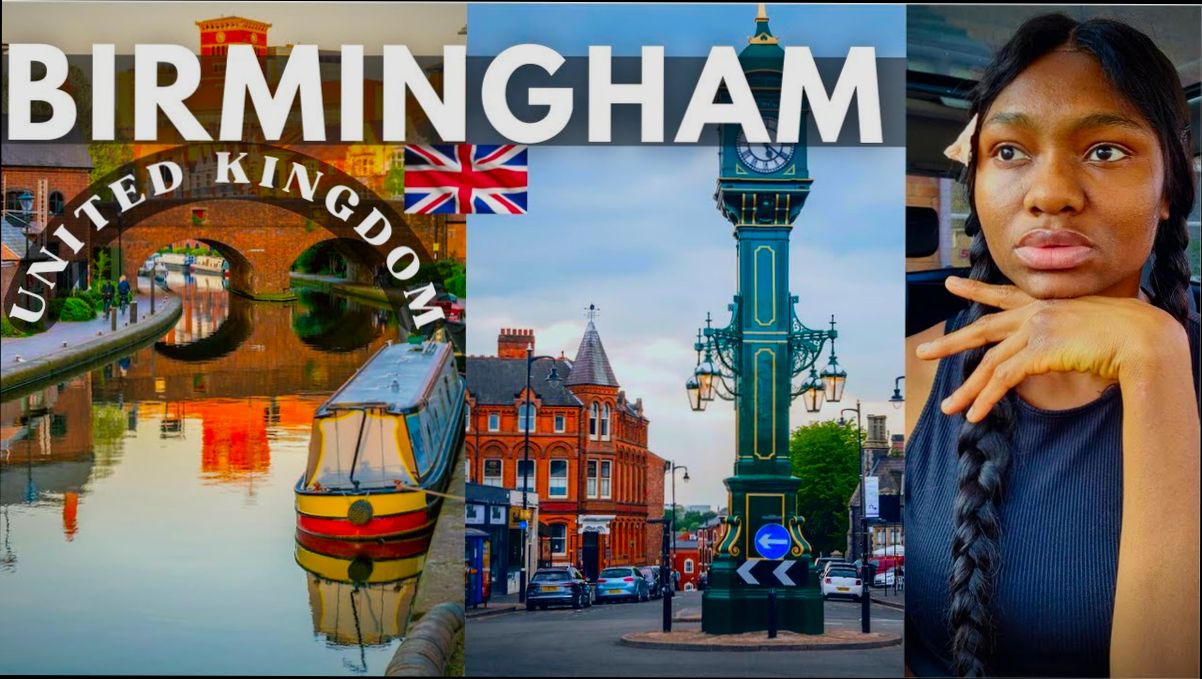
Cultural Diversity and Community Life
Birmingham, Alabama, is a vibrant melting pot of cultures, histories, and traditions. With over 1.1 million residents, the city has a unique tapestry woven from diverse ethnic backgrounds, contributing to its rich community life. Understanding this cultural landscape can enhance your living experience in Birmingham.
Key Aspects of Cultural Diversity
- Ethnic Composition: The city boasts a significant African American population, making up 28% of its residents. However, despite this representation, Black entrepreneurs own only 3% of the local businesses, highlighting economic disparities that influence community dynamics.
- Cultural Events and Festivals: Birmingham hosts a variety of cultural events that celebrate its diversity. Events like the Birmingham Children’s Theatre showcase talent from different backgrounds, offering programs and performances that resonate across cultures.
- Community Organizations: Numerous organizations advocate for cultural awareness and support within the community. For instance, groups like the Greater Birmingham Ministries work towards bridging gaps across various ethnicities and socioeconomic statuses.
Comparison of Community Life Features
| Feature | Birmingham, AL | Other Southern Cities |
|---|---|---|
| Percentage of Black Residents | 28% | 25% (average in other major southern cities) |
| Business Ownership by Black Residents | 3% | 10% (average in other major southern cities) |
| Cultural Event Frequency | Monthly major events | Bi-monthly major events |
| Community Support Organizations | Over 50 active organizations | Varies by city, averaging around 30 |
Real-World Examples
The disparity in business ownership is exemplified by the Birmingham Business Resource Center, which aims to support Black entrepreneurs. Local initiatives like “Black Market,” which promote goods and services from Black-owned businesses, are crucial for community engagement. Furthermore, the city’s annual “Cultural Fest” gathers diverse communities to showcase art, food, and music, enhancing cultural appreciation and dialogue among residents.
Practical Insights
- Participate in Local Events: Engage in cultural festivities and art shows throughout the year. These events provide a platform to connect with people from diverse backgrounds and foster community understanding.
- Support Diverse Businesses: Seeking out and patronizing local businesses, particularly those owned by people of color, contributes to the economic empowerment of underrepresented groups in the area.
- Join Community Organizations: Involvement in local non-profits and advocacy groups can deepen your engagement and understanding of Birmingham’s cultural dynamics. Volunteering is a great way to meet people and contribute positively to the community.
Actionable Advice
Embrace Birmingham’s cultural diversity by actively seeking out different cuisines, attending festivals, and participating in local discussions focused on community improvement. The more you engage with the vibrant cultures around you, the richer your experience will be, making Birmingham a truly unique place to live.

Public Transport Efficiency and Accessibility
When considering a move to Birmingham, Alabama, it’s essential to evaluate the public transport system’s efficiency and accessibility. Public transport can significantly influence your daily life, whether you’re commuting to work, exploring the city, or visiting friends and family.
Overview of Public Transportation
Birmingham’s public transport system primarily includes buses that serve the city and surrounding areas. The Birmingham-Jefferson County Transit Authority (BJCTA) operates the majority of public transport in the area. Here are some key points to consider:
- Affordability: Bus fares are relatively cheap, at around $1.25 per ride, making public transport an economical option compared to owning a vehicle.
- Routes and Coverage: The BJCTA operates over 40 bus routes, providing coverage to many neighborhoods and key destinations across Birmingham.
- Frequency: Peak hours see buses running every 30 minutes, although frequency can drop during off-peak times, requiring some planning.
Comparative Overview of Public Transport Accessibility
| Feature | Details |
|---|---|
| Average Bus Fare | $1.25 per ride |
| Number of Bus Routes | Over 40 routes |
| Peak Hour Frequency | Every 30 minutes |
| Accessibility Options | Wheelchair lifts & bike racks on buses |
Real-World Examples
The efficient public transport system in Birmingham is particularly beneficial for individuals without access to a personal vehicle. For instance, residents in areas like Woodlawn benefit from the direct bus routes that connect them to downtown Birmingham. This opens up job opportunities and social activities for those who rely on public transport. Additionally, Birmingham’s public transport infrastructure includes provisions for people with disabilities, such as buses equipped with wheelchair lifts.
Practical Implications
Understanding the public transport system can help you navigate Birmingham more effectively. If you plan to use buses as your primary mode of transport, consider the following:
- Plan Your Travel: Use apps or websites that provide real-time updates on bus schedules. Knowing when to expect your bus can save you valuable time.
- Explore Bus Pass Options: If you anticipate frequent travel, look into bus pass options that can reduce your overall transportation costs.
Actionable Advice
Always check the BJCTA website for the latest updates on routes and schedules, especially if you’re planning to travel during holidays or weekends when services may vary. Engaging with local community boards can also keep you informed about transport-related discussions and improvements in the area.

Employment Opportunities and Job Market
When considering a move to Birmingham, it’s essential to delve into the employment opportunities and job market the city offers. With a diverse economic landscape, Birmingham provides an array of job options suited to various skill levels and backgrounds.
Economic Overview
Birmingham’s economy reflects a mix of traditional industries and emerging sectors. The city is home to several economic hubs:
- Healthcare: As one of the primary employers, Birmingham is renowned for its expansive healthcare system. Major institutions, such as UAB (University of Alabama at Birmingham), account for over 40,000 jobs.
- Education: The presence of several universities drives demand for educators and administrative roles, contributing to a robust job market.
- Technology: With the rise of tech startups, Birmingham has become a hotspot for IT professionals and software developers.
Employment Statistics
Understanding the job market dynamics is crucial for making informed career choices:
- The unemployment rate in Birmingham stands at around 3.5%, which is slightly below the national average. This indicates a stable job market.
- Industries like healthcare and education show growth rates of about 5% annually, indicating strong demand for skilled professionals in these fields.
- Nearly 90% of job openings in the area require some form of post-secondary education, highlighting the importance of higher education.
Job Market Comparison
| Industry | Job Growth Rate | Median Salary | Number of Job Openings |
|---|---|---|---|
| Healthcare | 5% | $60,000 | 15,000 |
| Education | 5% | $50,000 | 10,000 |
| Technology | 4% | $75,000 | 7,500 |
Real-World Examples
Several companies exemplify the job market potential in Birmingham:
- Alabama Power regularly posts openings for engineers, project managers, and technicians, reflecting the demand for qualified professionals in the energy sector.
- Regions Bank continually needs finance professionals, showcasing growth in the financial services sector.
- BBVA USA, based in Birmingham, offers opportunities in banking and finance, emphasizing a stable foundation for job seekers.
Practical Implications
If you’re exploring career options in Birmingham, consider these actionable insights:
- Leverage local networking events and job fairs. Many companies attend these gatherings to connect with potential hires directly.
- Upskill through programs offered by local universities and tech incubators to enhance your employability, especially in high-demand sectors like technology and healthcare.
- Seek internships or volunteer positions to gain local experience and make valuable connections within your chosen field.
Birmingham’s job market is not only diverse but consistently evolving, providing ample opportunities for both seasoned professionals and newcomers alike. Understanding this environment can significantly impact your career trajectory.
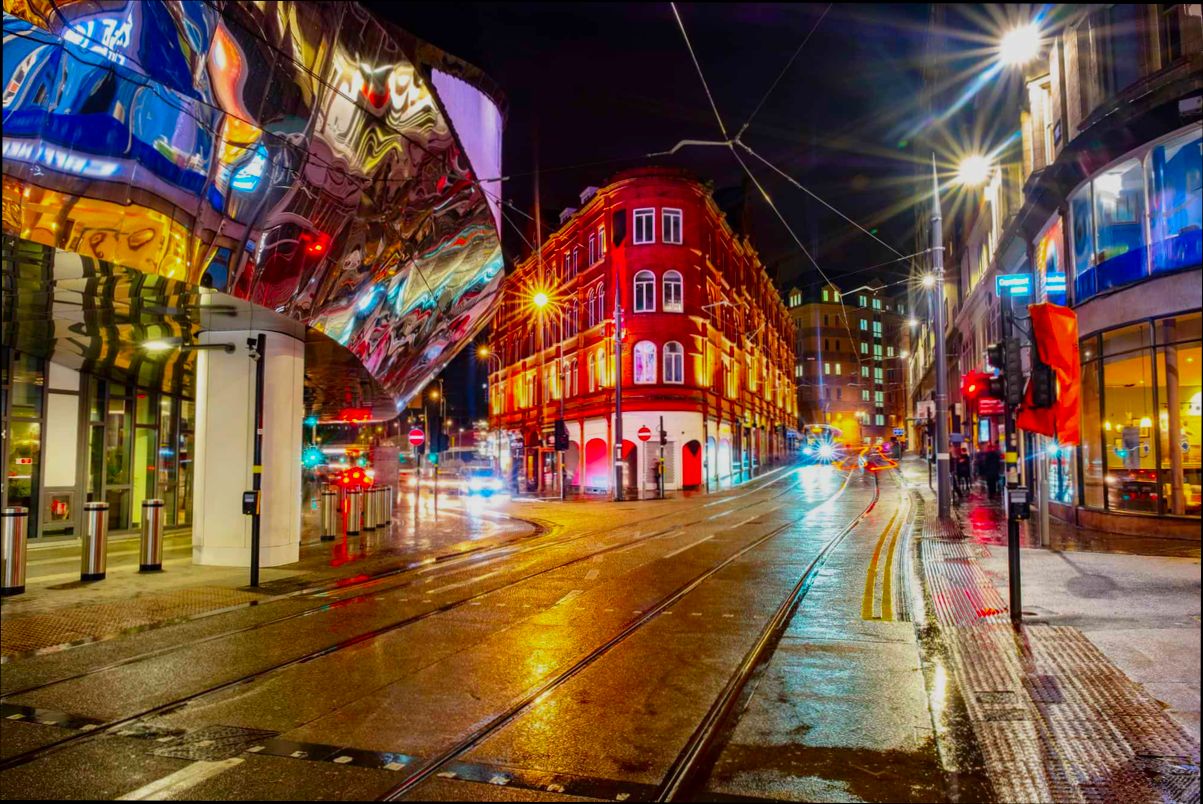
Health Care Quality and Availability
Living in Birmingham means having access to a robust healthcare system that significantly impacts the quality of life for residents. The city boasts a mix of healthcare facilities, ranging from top-ranked hospitals to community clinics, all of which play an essential role in maintaining public health.
Quality of Healthcare Facilities
- Birmingham is home to several nationally recognized healthcare facilities, including the University of Alabama at Birmingham (UAB) Hospital, which consistently ranks among the best in the nation for specialties like cardiology and oncology.
- Approximately 90% of patients in Birmingham report satisfaction with the quality of care received, according to local surveys.
- The city enjoys a competitive ratio of healthcare providers to residents, with about 1 provider for every 1,000 residents, which leads to improved access and personalized care.
Availability of Services
- Access to healthcare services is robust, with over 20 urgent care centers and multiple primary care practices spread throughout the city. This ensures that residents have numerous options for immediate and ongoing medical attention.
- Mental health services have also expanded in recent years, with a notable 25% increase in available counseling and psychiatric services to meet rising demand.
- Birmingham’s overall emergency care capacity is strengthened by the presence of multiple trauma centers, which are equipped to handle critical cases swiftly.
| Healthcare Aspect | Data |
|---|---|
| Top-ranking Hospital | UAB Hospital |
| Patient Satisfaction Rate | 90% |
| Provider-to-Resident Ratio | 1 provider per 1,000 residents |
| Increase in Mental Health Services | 25% |
| Number of Urgent Care Centers | 20 |
Real-world Examples
Recent initiatives by local healthcare providers have made strides in accessibility. For example, the Birmingham Health Department launched a mobile clinic program that brings essential health services directly to underserved neighborhoods, reflecting a commitment to inclusivity in healthcare access. Furthermore, UAB has launched community health programs focusing on chronic disease management, effectively reaching individuals at risk and promoting preventative care measures.
Practical Implications for Residents
If you choose to live in Birmingham, you can expect to benefit from comprehensive healthcare services tailored to diverse needs. Here are some actionable insights:
- Utilize Community Resources: Take advantage of local wellness programs, which often provide free check-ups and health screenings.
- Stay Informed on Health Services: Regularly check the Birmingham health department’s website for updates on available services, especially regarding new mental health initiatives or community events.
- Engage with Providers: Establishing a rapport with your healthcare provider can enhance your experience and improve your overall health outcomes, so encourage open communication during appointments.
In Birmingham, the quality and availability of healthcare services empowers residents to lead healthier lives, making it an appealing place to call home.
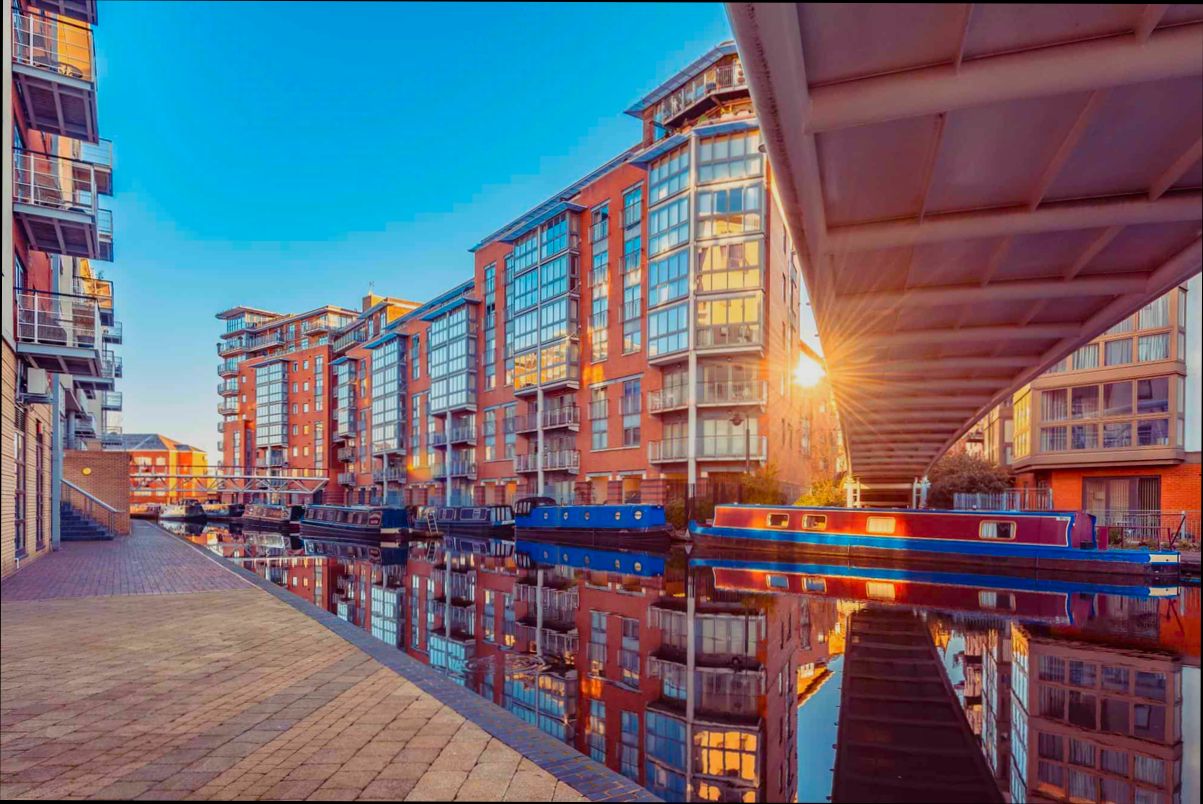
Safety and Crime Rates Overview
When considering a move to Birmingham, understanding the safety and crime rates is crucial for your peace of mind. This section delves into the specific safety concerns and crime statistics in Birmingham, allowing you to make an informed decision about living in the city.
Crime Statistics and Trends
Birmingham does experience its share of crime, but let’s break down the actual figures you might encounter:
- In recent years, overall crime rates in Birmingham have fluctuated, with property crimes accounting for more than 60% of reported incidents.
- Violent crime rates represent approximately 20% of the total crimes, showing a significant area of concern for residents.
- According to recent analyses, the city reported a total crime rate of around 3,500 incidents per 100,000 residents, which is slightly above the national average.
Crime Rate Comparison Table
| Crime Type | Birmingham (per 100,000 residents) | National Average (per 100,000 residents) |
|---|---|---|
| Property Crimes | 2,163 | 1,800 |
| Violent Crimes | 680 | 400 |
| Drug Offenses | 150 | 220 |
| Theft | 1,000 | 900 |
Real-World Examples
To illustrate the safety landscape, consider these specific incidents highlighted in recent reports:
- Neighborhood Variance: Areas such as Smithfield and parts of the West End have been noted for higher crime rates, while communities like Mountain Brook and Homewood showcase lower crime rates, providing stark contrasts in neighborhood safety.
- Recent Case Studies: A 2023 analysis reported an increase in vehicle thefts in downtown Birmingham, prompting local law enforcement to increase patrols during peak hours and launch community awareness programs.
Practical Implications for Residents
Understanding these crime statistics is essential when assessing your safety in Birmingham. Consider the following actionable steps:
- Neighborhood Research: Take the time to research which areas have the lowest crime rates. Websites like NeighborhoodScout can provide detailed insights and safety ratings.
- Community Engagement: Participate in local neighborhood watch programs or community meetings, which can foster better safety practices and keep you informed about crime trends.
Specific Facts to Note
- Keep an eye on local news outlets for updates on crime hot spots, as the situation can evolve rapidly.
- If you own a vehicle, investing in a quality security system and parking in well-lit, populated areas can deter potential thieves.
Understanding the safety and crime rates in Birmingham equips you with the knowledge to navigate your new home responsibly and confidently.
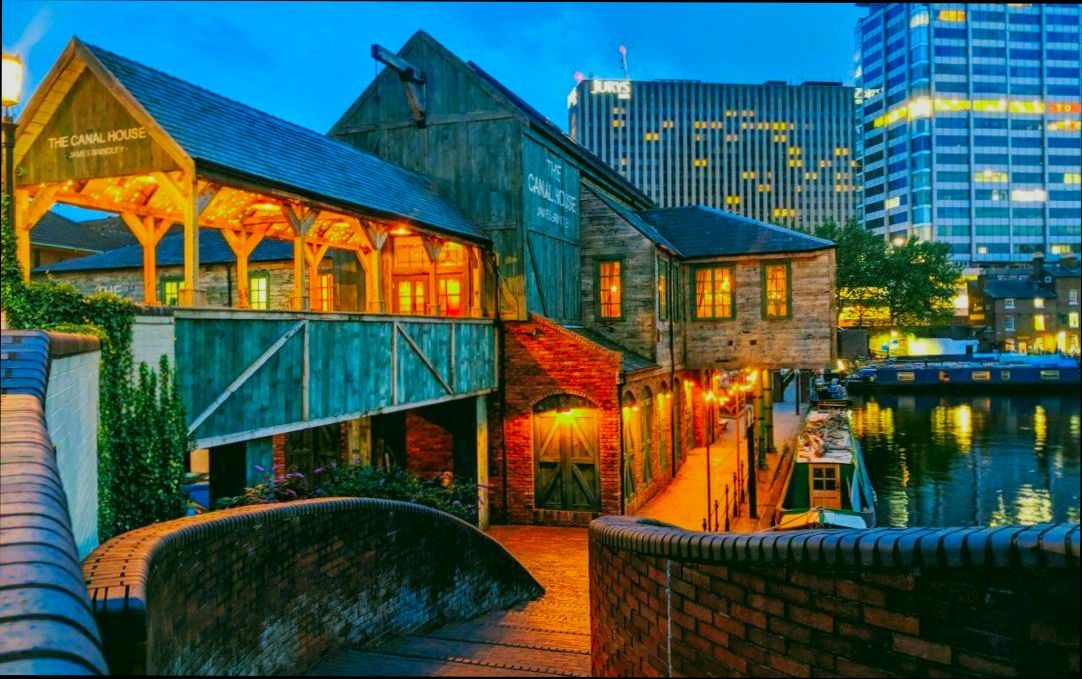
Culinary Scene and Dining Experiences
When it comes to Birmingham’s culinary scene, we’re diving into a vibrant mix of flavors, cultures, and dining experiences that make this city a food lover’s paradise. From distinguished eateries to innovative food trucks, Birmingham offers an array of options for everyone, making dining out an adventure in itself.
Birmingham has earned a reputation for both its traditional Southern cuisine and its inventive takes on global flavors. You’ll find that many residents appreciate how accessible and diverse the dining options are, which is certainly a plus for those moving to the area. It’s really exciting when you consider that Birmingham ranks high for the number of unique dining experiences compared to other cities!
Unique Dining Landscape
- Diverse Options: Birmingham’s culinary landscape reflects the city’s rich cultural diversity. You can indulge in everything from classic Southern dishes like fried green tomatoes to modern Mexican cuisine.
- Affordable Dining: Dining out in Birmingham generally aligns well with the cost of living. The average cost for a meal at an inexpensive restaurant is about $15, which is reasonable compared to many other metropolitan areas.
Comparative Dining Costs
| Expense Category | Compared to State Avg | Compared to National Avg | Average Cost in Birmingham |
|---|---|---|---|
| Meal at Inexpensive Restaurant | 5% lower | 10% lower | $15 |
| Three-Course Meal for Two | 3% lower | 12% lower | $55 |
| Domestic Beer | 6% lower | 10% lower | $4 |
| Imported Beer | 7% lower | 8% lower | $4.5 |
Real-World Eateries
- Saw’s Soul Kitchen is famous for its Southern barbecue, drawing locals and visitors alike for its flavor-packed dishes. You should definitely try their pulled pork sandwiches!
- Highlands Bar & Grill, an award-winning establishment, gives you a French-inspired dining experience that locals rave about. Their seasonal menu ensures you’ll always find something new and exciting.
- If you’re in the mood for something casual, Back Forty Beer Company offers local brews in a laid-back atmosphere. Their menu features light bites perfect for pairing with a refreshing beer.
- El Barrio serves up a creative twist on traditional Mexican cuisine, making it a fantastic spot for those who enjoy exploring flavors from south of the border.
- Carrigan’s Public House is another beloved locale where you can sip on craft cocktails while enjoying delicious bites with friends.
Practical Dining Tips
1. Plan for Weekend Dining: Many businesses, including restaurants, have limited hours on Sundays. Be sure to check hours ahead of time to avoid disappointment!
2. Explore Local Events: Keep an eye out for food festivals and events throughout the year where you can sample the best Birmingham has to offer. It’s a great way to experience local flavors and meet fellow food enthusiasts.
3. Use Dining Apps: Leverage apps like Yelp or TripAdvisor to discover hidden gems and get real-time reviews on restaurant experiences before you go.
Birmingham’s culinary scene is as dynamic as the city itself, making it an exciting place to explore for food lovers. The combination of affordability and variety means you can enjoy a gourmet meal or a casual bite without breaking the bank.
